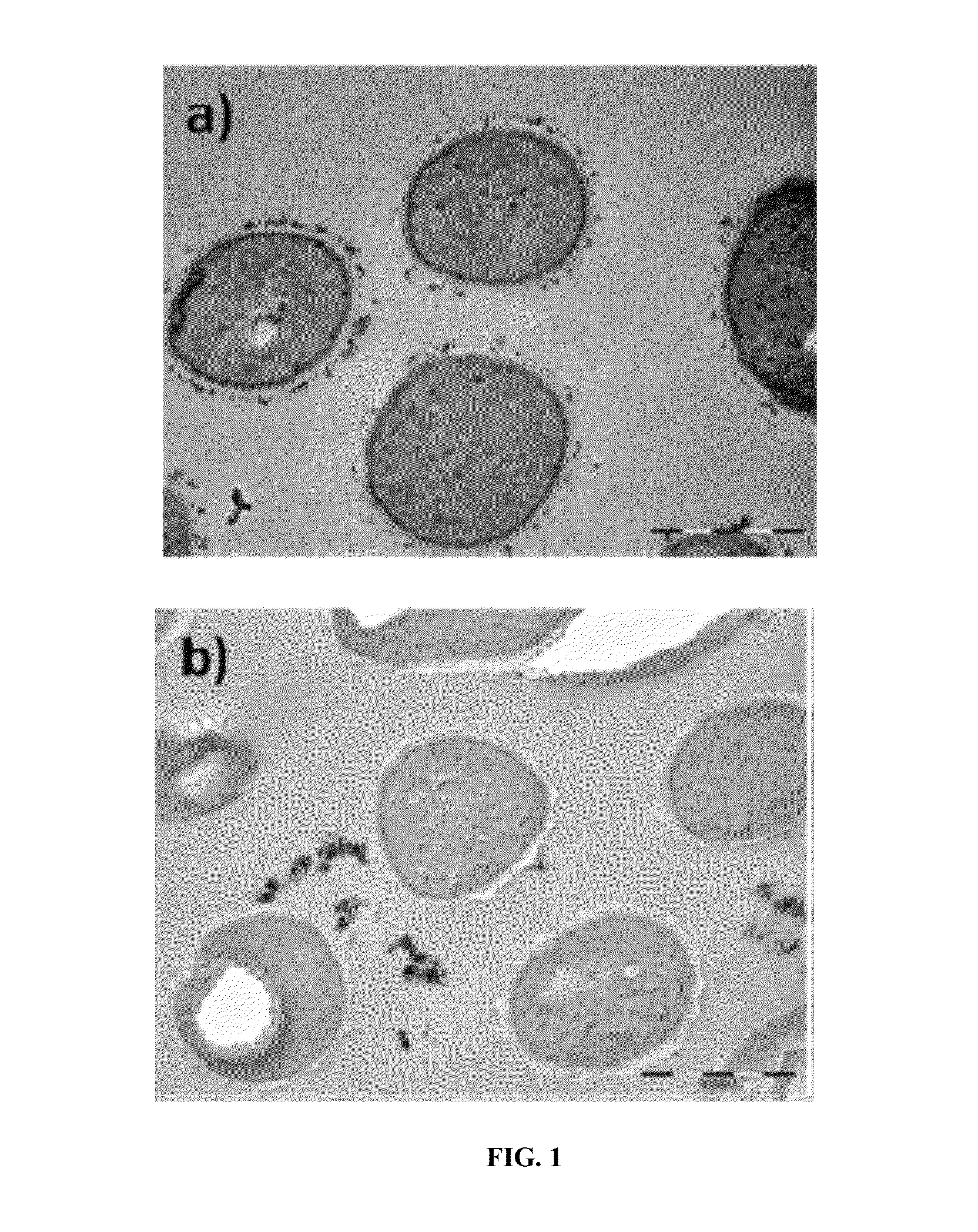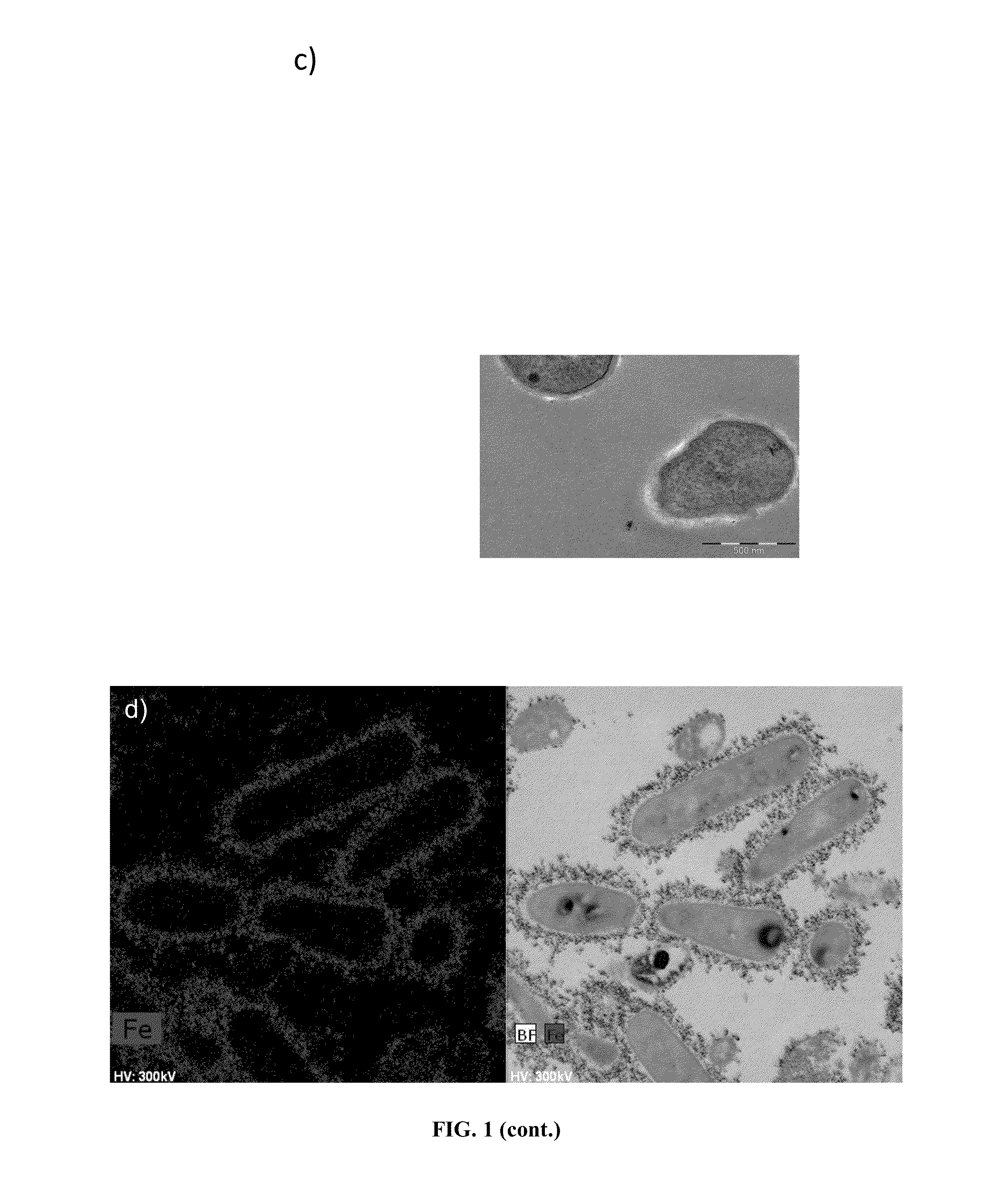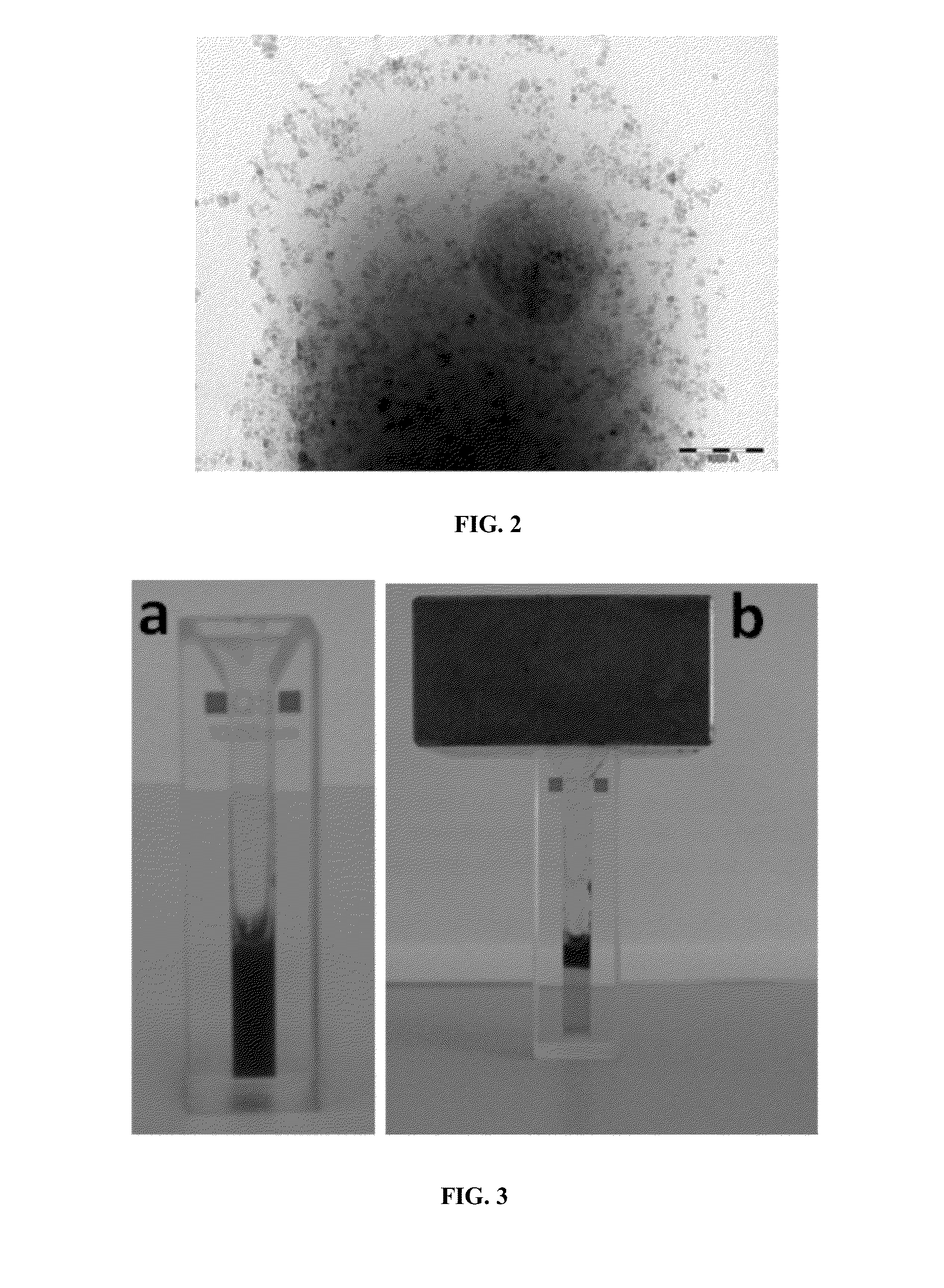Probiotic bacteria comprising metals, metal nanoparticles and uses thereof
a technology of probiotic bacteria and metal nanoparticles, applied in the field of probiotic bacteria, can solve the problems of iron deficiency, iron deficiency, iron deficiency the most common nutritional problem, and iron deficiency is considered an emerging public health problem
- Summary
- Abstract
- Description
- Claims
- Application Information
AI Technical Summary
Benefits of technology
Problems solved by technology
Method used
Image
Examples
example 1
Artificial Magnetic Bacteria as Nanomagnets at Room Temperature
Materials and Methods
[0185]Preparation of Bacteria with Maghemite Nanoparticles
[0186]A culture of bacteria was prepared and kept at 37° C. and agitation for 24 h. Then the bacterial culture was kept on ice to cool bacteria down, bacteria were collected by centrifuging at 100 g and the optical density was measured at 600 nm to take 1×109 cfu / ml. Bacteria were resuspended carefully in 1 ml of ice-cold MgCl2-CaCl2 solution (174.02 g of CaCl2.2H2O and 203.02 g of MgCl2.6H2O and dissolve them in 1 L of distilled water) to wash away all impurities and bacteria were collected at 3000 g, 10 min. After this, tubes were kept in inverted position for 1 min for water to drain away and then 66.6 μl of a solution of the maghemite nanoparticles (0.95 M) at pH 2 were mixed with the bacteria. The mixture was filled with water up to 1 ml and bacteria were collected by centrifuging at 100 g, 20 min, to remove the excess of ion.
[0187]Maghem...
example 2
Iron, Calcium and Zinc Delivery Study
Materials and Methods
[0198]Bacteria with Minerals (Adapted from Sambrook J, Russell D W (2001). Molecular Cloning: A Laboratory Manual. 3rd ed. Cold Spring Harbor (NY): Cold Spring Harbor Laboratory Press.132-150)
[0199]A batch of four different types of samples was prepared: a) Only bacteria (control), b) bacteria with calcium, c) bacteria with calcium and zinc and finally d) bacteria with calcium, zinc and iron.
[0200]The general procedure is as follows:[0201]1. Measure the O.D.600 of the 24 hours L. fermentum culture to collect 2×109 cells / ml.[0202]2. Cool the cultures to 0° C. by storing the tubes on ice for 10 minutes.[0203]3. Recover the cells by centrifugation at 3000 g, 20 minutes at 4° C.[0204]4. Decant the medium from the cell pellets. Stand the tubes in an inverted position on a pad of paper towels for 1 minute to allow the last traces of media to drain away.[0205]5. Resuspend each pellet by swirling or gentle vortexing in 1 ml of ice-co...
example 3
Metal Incorporation on the Bacterium Surface
Materials and Methods
[0226]Scanning electron microscopy (SEM) is one of the most powerful techniques for studying surface fine structures. SEM images were recorded by using a Zeiss SUPRA40VP Scanning Electron Microscope coupled with energy dispersive X-ray analyzer (EDX) X-Max 50 mm. EDX is an analytical technique used for elemental analysis or chemical characterization. Samples were coated with carbon by arc discharge method for SEM-EDX.
Results
[0227]Energy dispersive x-ray spectroscopy was used to determine the elemental composition of the surface of individual bacteria. The SEM image of FIG. 8a shows the bacteria after incubation with Ca2+. EDX spectrum showed the Ka peak at 3.8 eV characteristic of Ca, representing a value of around 10% in weight (FIG. 8b).
[0228]The SEM image of FIG. 9a shows the bacteria after incubation with maghemite and Ca2+. EDX spectrum showed the Ka peaks at 6.2 eV and 3.8 eV characteristic of Fe and Ca, respecti...
PUM
 Login to View More
Login to View More Abstract
Description
Claims
Application Information
 Login to View More
Login to View More - R&D
- Intellectual Property
- Life Sciences
- Materials
- Tech Scout
- Unparalleled Data Quality
- Higher Quality Content
- 60% Fewer Hallucinations
Browse by: Latest US Patents, China's latest patents, Technical Efficacy Thesaurus, Application Domain, Technology Topic, Popular Technical Reports.
© 2025 PatSnap. All rights reserved.Legal|Privacy policy|Modern Slavery Act Transparency Statement|Sitemap|About US| Contact US: help@patsnap.com



